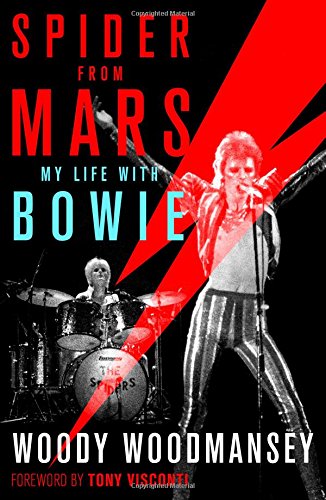THE MAN KNEW A GOOD PUBLICITY OPPORTUNITY WHEN HE SAW IT
New book looks at the year Hitler became Hitler
by Don Stradley
 Adolph
Hitler has many distinctions - the monster of Nazi Germany, the little
Word War One corporal who rose to power and lead his nation into another
war, the maniacal public speaker who rallied working class Germans into
believing his warped ideas about racial purity, a firebrand who seemed
to will himself into the role of Germany's savior - but he was singularly himself. You simply can't make a case for Hitler being anything other than
what he turned out to be. He's like the poisonous snake in the old fable that says, "What did you expect from me? I'm a snake!" Peter Ross Range's excellent book, 1924: The Year That Made Hitler, approaches the Hitler story in a unique way and digs up some unexpected surprises. By focusing only on
the year Hitler spent in prison, Range not only illuminates the way Hitler
"converted his plunge into disgrace and obscurity into a springboard
for success," but captures what may have been
Hitler's essence. Like certain serial killers, rock stars, and idiot
savants, Hitler was strangely childlike. At heart, he was like a little
boy alone in his room at night, commanding imaginary crowds.
Adolph
Hitler has many distinctions - the monster of Nazi Germany, the little
Word War One corporal who rose to power and lead his nation into another
war, the maniacal public speaker who rallied working class Germans into
believing his warped ideas about racial purity, a firebrand who seemed
to will himself into the role of Germany's savior - but he was singularly himself. You simply can't make a case for Hitler being anything other than
what he turned out to be. He's like the poisonous snake in the old fable that says, "What did you expect from me? I'm a snake!" Peter Ross Range's excellent book, 1924: The Year That Made Hitler, approaches the Hitler story in a unique way and digs up some unexpected surprises. By focusing only on
the year Hitler spent in prison, Range not only illuminates the way Hitler
"converted his plunge into disgrace and obscurity into a springboard
for success," but captures what may have been
Hitler's essence. Like certain serial killers, rock stars, and idiot
savants, Hitler was strangely childlike. At heart, he was like a little
boy alone in his room at night, commanding imaginary crowds.Early in Range's book we meet a pushy young Hitler, a "thirty-four year old politician known for his hot rhetoric," and watch as he brazenly leads his small group of bruisers in a bungled takeover of a Munich beer hall. His "putsch" fails - 21 men drop dead around him from gunshots but, in a quirk of fate, all the bullets missed Hitler. The worst that happens to him is he falls in the melee and bangs up his shoulder. And it wasn't even his sieg heiling shoulder. After a masterful performance at his trial, where he grandstanded and portrayed himself as a true German out to make history - a lay judge was overheard by a journalist saying, "What a tremendous guy, this Hitler!" - he was sentenced to serve time at Landsberg Prison 38 miles west of Munich. Making the best of the situation, the future leader of Germany stuffed his face with pastries sent to him by female admirers, and began work on his "overwritten manifesto," Mein Kampf.
It was during his 13 month incarceration that Hitler began to rethink his approach. Brute force, he decided, wasn't the best way to establish himself as a leader. Had Hitler not spent time in prison thinking over his failed putsch, Range surmises,"he might never have emerged as the redefined and recharged politician who ultimately gained control of Germany, inflicted war on the world, and perpetrated the Holocaust." But it's largely through observations made by Hitler's feral lackey, Rudolf Hess, that the essence of Hitler comes through. Hess, after listening to Hitler read a chapter of his book in progress, described him as being a "mixture of cold-blooded mature superiority and uninhibited childishness." Hess once wrote in a letter to his future wife that Hitler could be heard in the the prison's common room making a commotion: "He seems to be reliving his war experiences - he is imitating the sounds of grenades and machine guns, jumping wildly around the room, carried away by his fantasies."
Range has written a rich, highly readable account of Hitler's prison year. But even when you cut Hitler's life into a handy chunk you still see him through something like a fun-house mirror. Females adored him, for example, but he was described by one woman in his circle as "an absolute neuter." He was diabolically smart, but historians still debate how many books he actually read. He didn't know how to drive, but spent his final weeks at Landsberg pouring over a Mercedes catalogue, wanting to be chauffeured out of prison in style. He struggled to write his thoughts down, but could spit them out like bolts of lightning when making a speech. What's most eerie about Range's book is a quote from Dietrich Eckart, an influential figure in Germany's anti-Semite movement of the 1920s. Describing the ideal spokesman for the growing party, Eckart said with chilling clairvoyance, "We need a leader who isn't bothered by the clatter of a machine gun...and who does not run from somebody swinging a chair at him. He has to be a bachelor...then we'll get the women!" It's as if the group mined the swampiest edges of a collective unconscious to create the man they needed; Hitler merely appeared out of the ether and stepped into the role. Somehow this reminded me of when good ol' Sam Phillips said he needed a white boy who could sing the blues. Along came Elvis, like he'd been summoned.


